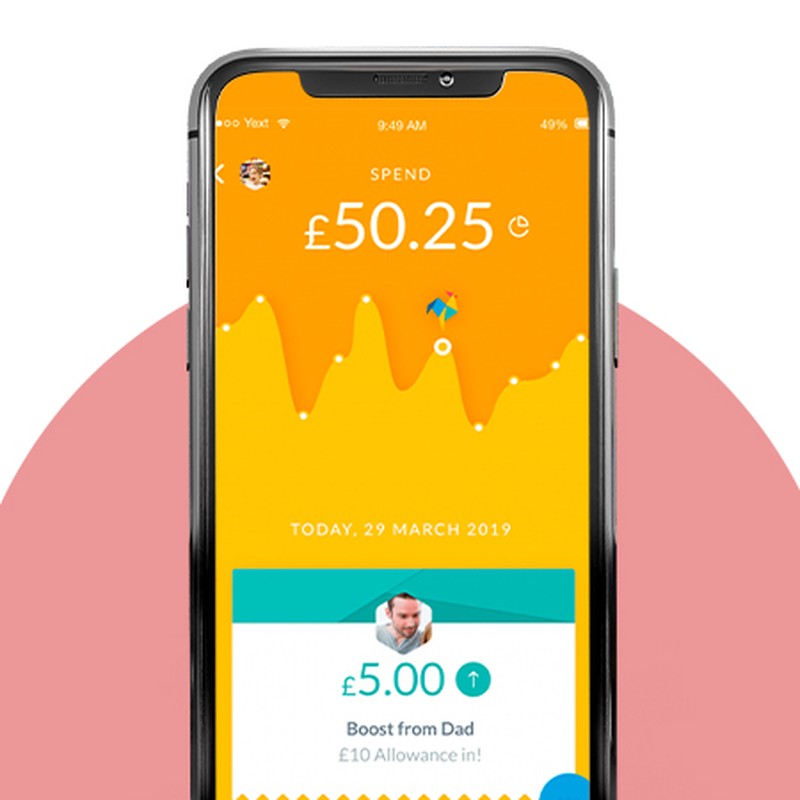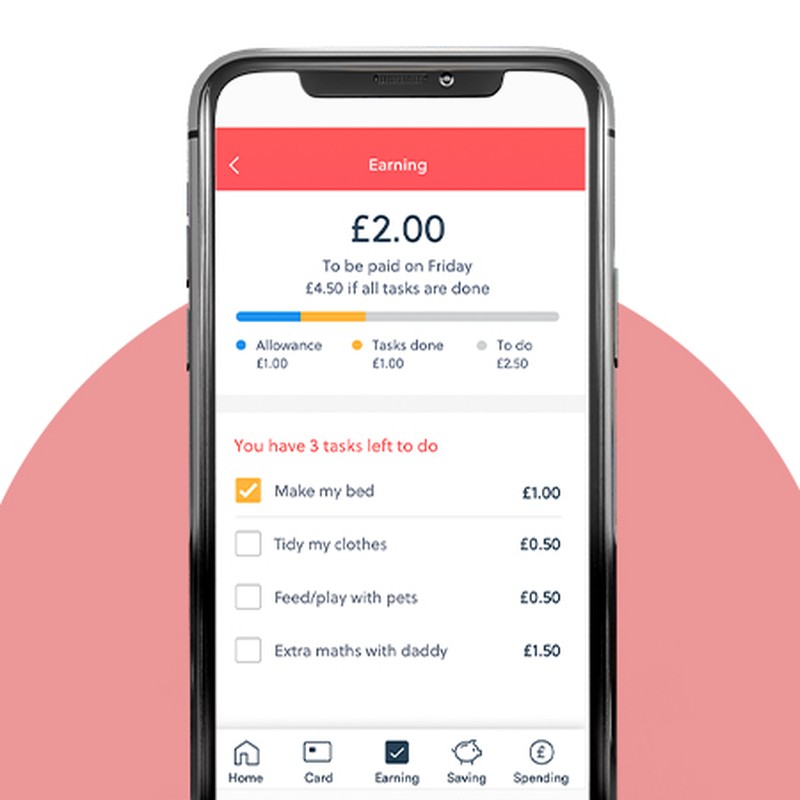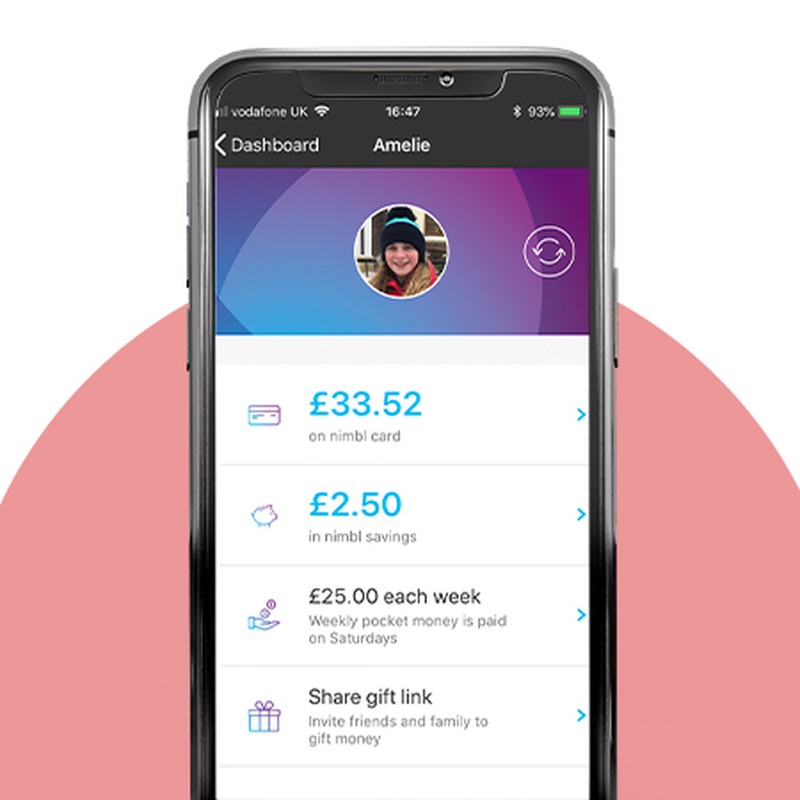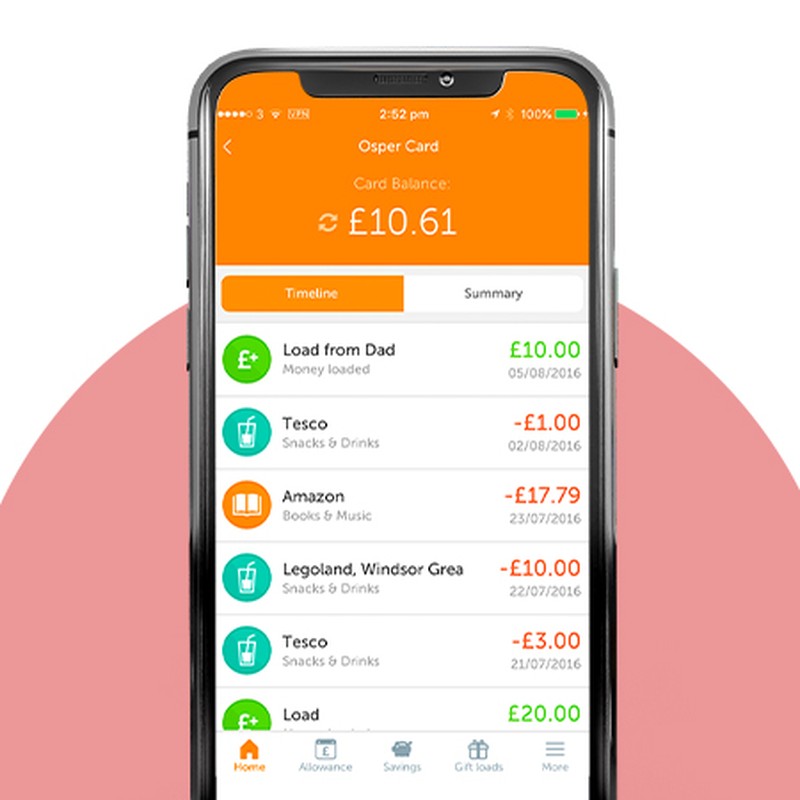A Parents' Guide To Pocket Money
 Some parents start giving out pocket money from the age of four or five, while others wait until their children are teenagers. According to the experts at MoneySupermarket.com, children are usually ready to start talking about and managing their own money when they understand they need it to buy things, that saving money allows you to buy more expensive items, and that after spending all their money, there isn’t going to be any more.
Some parents start giving out pocket money from the age of four or five, while others wait until their children are teenagers. According to the experts at MoneySupermarket.com, children are usually ready to start talking about and managing their own money when they understand they need it to buy things, that saving money allows you to buy more expensive items, and that after spending all their money, there isn’t going to be any more.
 According to Halifax – which has conducted an impressive survey on pocket money every year since 1987 – the average child in the UK gets £7 a week, starting anytime between the ages of four and ten. On average, kids across the country are given £1 for under-fives, £3 for five- to seven-year-olds, £7 for seven- to nine-year-olds, £9.50 for 10- to 13-year-olds and £15 for 14 years and over. The general consensus is that, even if you can’t afford £7 a week, try to give children something – even if it’s another kind of reward – on a regular basis. Where possible, it’s important for them to be familiar with coins and notes, and to see something tangible in their hands.
According to Halifax – which has conducted an impressive survey on pocket money every year since 1987 – the average child in the UK gets £7 a week, starting anytime between the ages of four and ten. On average, kids across the country are given £1 for under-fives, £3 for five- to seven-year-olds, £7 for seven- to nine-year-olds, £9.50 for 10- to 13-year-olds and £15 for 14 years and over. The general consensus is that, even if you can’t afford £7 a week, try to give children something – even if it’s another kind of reward – on a regular basis. Where possible, it’s important for them to be familiar with coins and notes, and to see something tangible in their hands.
 Most children are still given pocket money in cash. Times may have moved on, but it's important for children to see their money accumulating in a piggy bank. The experts at MoneySupermarket explain: “Give pocket money on the same day each week, and stand your ground if your kids spend it and ask you for more. It’s all part of them learning how to budget.”
Most children are still given pocket money in cash. Times may have moved on, but it's important for children to see their money accumulating in a piggy bank. The experts at MoneySupermarket explain: “Give pocket money on the same day each week, and stand your ground if your kids spend it and ask you for more. It’s all part of them learning how to budget.”
 Some parents feel pocket money is something to be earned, and according to the Halifax Pocket Money survey, 28% of children are given cash in return for helping out around the house. Just be mindful of developing habits which mean children only offer to do something in exchange for money. Clearly set out the jobs that are and aren’t paid for from the start, and make sure they understand what constitutes ‘work’ versus being generous and helpful.
Some parents feel pocket money is something to be earned, and according to the Halifax Pocket Money survey, 28% of children are given cash in return for helping out around the house. Just be mindful of developing habits which mean children only offer to do something in exchange for money. Clearly set out the jobs that are and aren’t paid for from the start, and make sure they understand what constitutes ‘work’ versus being generous and helpful.
 It’s perfectly rational to want to take pocket money away to punish bad behaviour. But experts will tell you setting up the right system is crucial to ensure good habits in the future. Instead of using confiscation as punishment, child psychologist Dr. Jemma Rosen-Webb, suggests using the prospect of pocket money as a positive way to encourage good behaviour. “It’s much more effective if your child is rewarded and working towards something than if their pocket money is taken away for poor behaviour, which sends a very confusing message,” she says. With that in mind, try not to promise pocket money without making all caveats abundantly clear. Make sure children know they will only receive it if they are well behaved and meet certain expectations across the week or month.
It’s perfectly rational to want to take pocket money away to punish bad behaviour. But experts will tell you setting up the right system is crucial to ensure good habits in the future. Instead of using confiscation as punishment, child psychologist Dr. Jemma Rosen-Webb, suggests using the prospect of pocket money as a positive way to encourage good behaviour. “It’s much more effective if your child is rewarded and working towards something than if their pocket money is taken away for poor behaviour, which sends a very confusing message,” she says. With that in mind, try not to promise pocket money without making all caveats abundantly clear. Make sure children know they will only receive it if they are well behaved and meet certain expectations across the week or month.
 If apps aren’t for you, some parents find it easier to open a real bank account for their child – so kids can have their own savings account and get into the habit of making a weekly direct debit. Not only does it teach them a sense of responsibility about managing money – as well as get them into the habit of using debit cards and building savings – it also makes it easier for family and friends to give them money for birthday or Christmas presents.
If apps aren’t for you, some parents find it easier to open a real bank account for their child – so kids can have their own savings account and get into the habit of making a weekly direct debit. Not only does it teach them a sense of responsibility about managing money – as well as get them into the habit of using debit cards and building savings – it also makes it easier for family and friends to give them money for birthday or Christmas presents.
 These days, there are other ways to hand out pocket money thanks to a new wave of smartphone apps. Use them to create a financial routine that suits, whether it's a weekly allowance, a pay per chore system, or something in between. As RoosterMoney CEO Will Carmichael explains, there’s never been a better time to get on board. “This pandemic and the financial impact of the crisis have the potential to affect us for a generation, so building financial capability into our kids’ lives is incredibly important. Having confidence with money, building positive habits around saving and learning to make considered spending choices will be skills that benefit them for life.”
These days, there are other ways to hand out pocket money thanks to a new wave of smartphone apps. Use them to create a financial routine that suits, whether it's a weekly allowance, a pay per chore system, or something in between. As RoosterMoney CEO Will Carmichael explains, there’s never been a better time to get on board. “This pandemic and the financial impact of the crisis have the potential to affect us for a generation, so building financial capability into our kids’ lives is incredibly important. Having confidence with money, building positive habits around saving and learning to make considered spending choices will be skills that benefit them for life.”
Inspired? Here are some of the best apps and platforms to consider…

RoosterMoney
Having launched in 2016, this pocket money and chores app allows children to set their own saving goals. Families can start using the app with younger kids, before moving on to 'real money' with the Rooster Card, a pre-paid debit card, when they’re ready. Even better, children are able to donate some of their hard saved money to a charity of their choice.
Download here

goHenry
If you’re looking for something more suited to older kids, but still with stringent parental controls, this app could be a good fit. Parents get their own accounts too, so you can set the parameters of how your child can spend their money, as well as directly topping up their accounts. Meanwhile, kids get their own cards to use online or in the shops, but you get notified whenever they do. It’s also possible to set weekly spending limits and block spending altogether, if necessary. Best of all, you can link pocket money pay outs with chores, so it only gets paid once the task is complete.
Download here

Nimbl
Another popular choice, in this app parents can transfer cash to a prepaid debit card, and receive alerts when their kids are spending money. It’s even possible to review their statements, as well as lock the card completely if you think anything is getting out of hand.
Download here

Osper
This prepaid debit card is suitable for children of any age between eight and 18, and allows you to set a monthly or weekly allowance, as well as transferring money instantly in the case of an emergency. There’s also a monthly saving option, which siphons off a percentage of the funds for a rainy day.
Download here
For more information on teaching children about finances, visit The Money Advice Service here
DISCLAIMER: We endeavour to always credit the correct original source of every image we use. If you think a credit may be incorrect, please contact us at info@sheerluxe.com.


